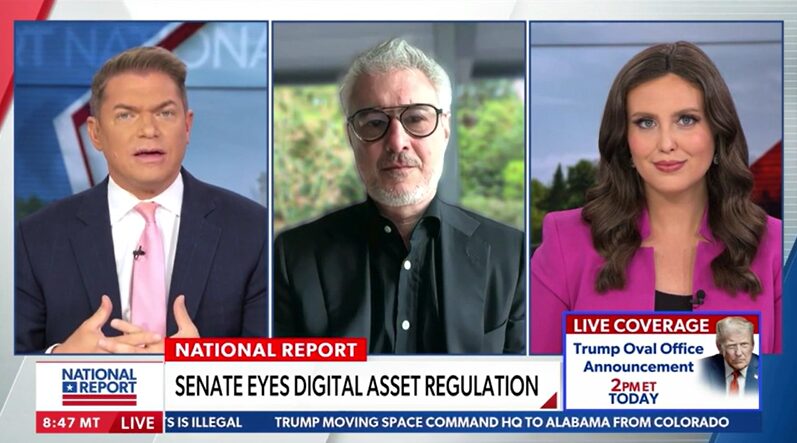Real World Asset Protocols Breathe Life Back into DeFi
10.05.2023
Wave Leadership Thoughts
Decentralized finance (DeFi) yields sank into oblivion during the latter half of 2022 as the crypto bull market came off the rails. This struck us as odd – crypto investor confidence dropped to all-time lows as risks multiplied, which should have driven up risk premiums, all while risk-free rates were increasing to above 4% by year-end. Yet billions of dollars sat on Aave and Compound for much of 2022, earning sub-1.5% yields.
This irrational scenario underlined just how far removed DeFi may be from traditional finance (TradFi), with investors unable to move easily between the two. Instead, DeFi experienced a scenario familiar to anyone who remembers the QE-driven economy of the 2010s: a large pool of capital sloshing around a limited investment ecosystem. This depressed yields while allowing failed dApps to become zombies, stumbling from crisis to crisis without innovation or improvement, fueled by slugs of stagnant capital.
Luckily in DeFi new business ideas are often only a few lines of code and a good lawyer away. Real World Asset (RWA) protocols began arriving in late 2022, with US Treasuries (UST) at the vanguard. A myriad of different tokenized UST structures have developed amid fierce competition. These include projects from major players like Franklin Templeton and WisdomTree, and more defi-native protocols like Ondo Finance, OpenEden, and Backed. Over $660 million in USTs have been brought on-chain as a result – although if you count Tron’s shadowy stUSDT it may be as high as $2.4 billion.
We believe this has caused DeFi yields to slowly grind higher, to the relief of beleaguered yield farmers. It’s also having a cleansing effect, with non-competitive protocols closing down as capital finally moves into more competitive investments. The increasing exposure to USTs may help demonstrate the importance of the crypto industry to TradFi as well. The two largest stablecoin companies, Tether and Circle, have shifted most of their $108 billion of collateral to USTs. This means that potentially $110 billion of short-term USTs are held by crypto companies and protocols, putting crypto among the 20 largest foreign UST holders in the world, and generating at least $220 billion of buy pressure per year. This comes at a time when the Treasury is seeing decreased demand amidst record-high federal deficits. Participants worry that popular attacks against crypto may stifle future innovation – but perhaps it’s killing a present-day golden goose too.
Market Update
WELCOME FRIENDS: Hundreds of institutions and prominent individuals have invested directly in crypto, adopted the value thesis, or started building technology to support digital assets since Wave started tracking these developments in late 2020. Now the rise of the Metaverse, Decentralized Finance (DeFi), Non-Fungible Tokens (NFTs), and Decentralized Autonomous Organizations (DAOs) is driving mainstream adoption of blockchain technologies everywhere we look. We’re continuing to keep track of it every week here:
- Binance Japan is partnering with Mitsubishi UFJ Trust Bank (MUTB) to create new stablecoins pegged to major currencies in Japan. The partnership will launch stablecoins pegged to fiat currencies, such as the Japanese Yen, and other foreign currencies, such as the U.S. Dollar.
- Microsoft is considering ways to integrate crypto wallet support into its Xbox gaming suite, according to documents leaked on September 19. The leaked documents are from a deposition that is part of the FTC’s lawsuit against Microsoft’s proposed $69 billion acquisition of Activision Blizzard—the gaming behemoth behind World of Warcraft, Hearthstone, Overwatch, Call of Duty, and Diablo III, among other triple-A titles.
- VanEck is launching its Ethereum Strategy ETF, which began trading on October 2nd. The ETF, listed under the ticker EFUT, will be traded on the Chicago Board Options Exchange (CBOE). The fund will invest in ether futures contracts, providing exposure to cash-settled ETH futures contracts traded on regulated commodities exchanges. It is important to note that the ETF does not have direct exposure to ETH. VanEck has also announced that it plans to donate 10% of all profits from the ETF to Ethereum core developers over the next decade.
REGULATORY ROUNDUP: We’re living through the era of regulatory recognition of digital assets. The legislation, litigation, and regulation happening today will dictate the entire future of our industry, and we have a historic chance to shape those changes by staying informed and providing public commentary.
- The U.S. Securities and Exchange Commission (SEC) has approved asset manager Valkyrie to trade Ethereum futures, while delaying its decision on a spot Bitcoin ETF. Valkyrie will add Ethereum futures to its existing Bitcoin ETF, with plans to allocate 10% of its fund to Ether initially and increase it to 50% on Monday October 2nd.
- Cryptocurrency exchange Gemini has announced that it will cease offering its services to customers in the Netherlands starting from November 17. The decision is attributed to regulatory requirements imposed by the De Nederlandsche Bank (DNB). Gemini has urged its customers to withdraw their crypto and fiat balances before the specified date.
- A new bill introduced by U.S. Democrat Representative Don Beyer aims to require cryptocurrency service providers to report all off-chain transactions to a government repository registered with the Commodity Futures Trading Commission (CFTC). The bill, called the “Off-Chain Digital Commodity Transaction Reporting Act,” aims to protect cryptocurrency investors from disputes, manipulation, or fraud that may arise from transactions occurring off-chain.
- The U.S. Securities and Exchange Commission (SEC) has once again delayed its decision on four Bitcoin exchange-traded fund (ETF) filings. The SEC announced separate extensions for BlackRock, Bitwise, Invesco Galaxy Digital, and Valkyrie. This is the second round of delays for these ETF applications in a month.
- Crypto exchange Coinbase has been given the green light to offer perpetual futures to non-US retail investors via Coinbase International Exchange. The announcement followed an earlier approval that enabled perpetual futures trading for non-US institutions.
- Coinbase has obtained a full operating license from the Monetary Authority of Singapore (MAS). The Major Payment Institution (MPI) license will enable Coinbase to offer enhanced services to both individuals and institutions in Singapore. This follows the In-Principle Approval (IPA) Coinbase received last year, demonstrating its commitment to the Singapore market.
Disclaimer: The views and opinions expressed herein are those of the author alone and do not represent Wave Digital Assets LLC or any of its affiliates (collectively, “Wave”). The author and/or Wave may hold investment positions in some of the assets discussed. Nothing in this material or linked information should be interpreted as an offer or recommendation to buy, sell or hold any security or other financial product. This material is not intended to provide accounting, legal or tax advice. Certain information contained herein has been obtained from third-party sources, has not been independently verified and should not be viewed as being endorsed by Wave. Such information is believed to be accurate as of the date of its publication. No representation or warranty is made, express or implied, with respect to the accuracy or completeness, and readers should not place undue reliance on the information contained or linked to herein. Certain statements in this material provide predictions and there is no guarantee that such predictions are currently accurate or will ultimately be realized. Past performance is not indicative of future results.
Wave is federally regulated by the US Securities & Exchange Commission as an investment adviser. Registration with a federal or state authority does not imply a certain level of skill or training. Additional information including important disclosures about Wave Digital Assets LLC also is available on the SEC’s website at www.adviserinfo.sec.gov. Or, learn more information about Wave at www.wavegp.com.




